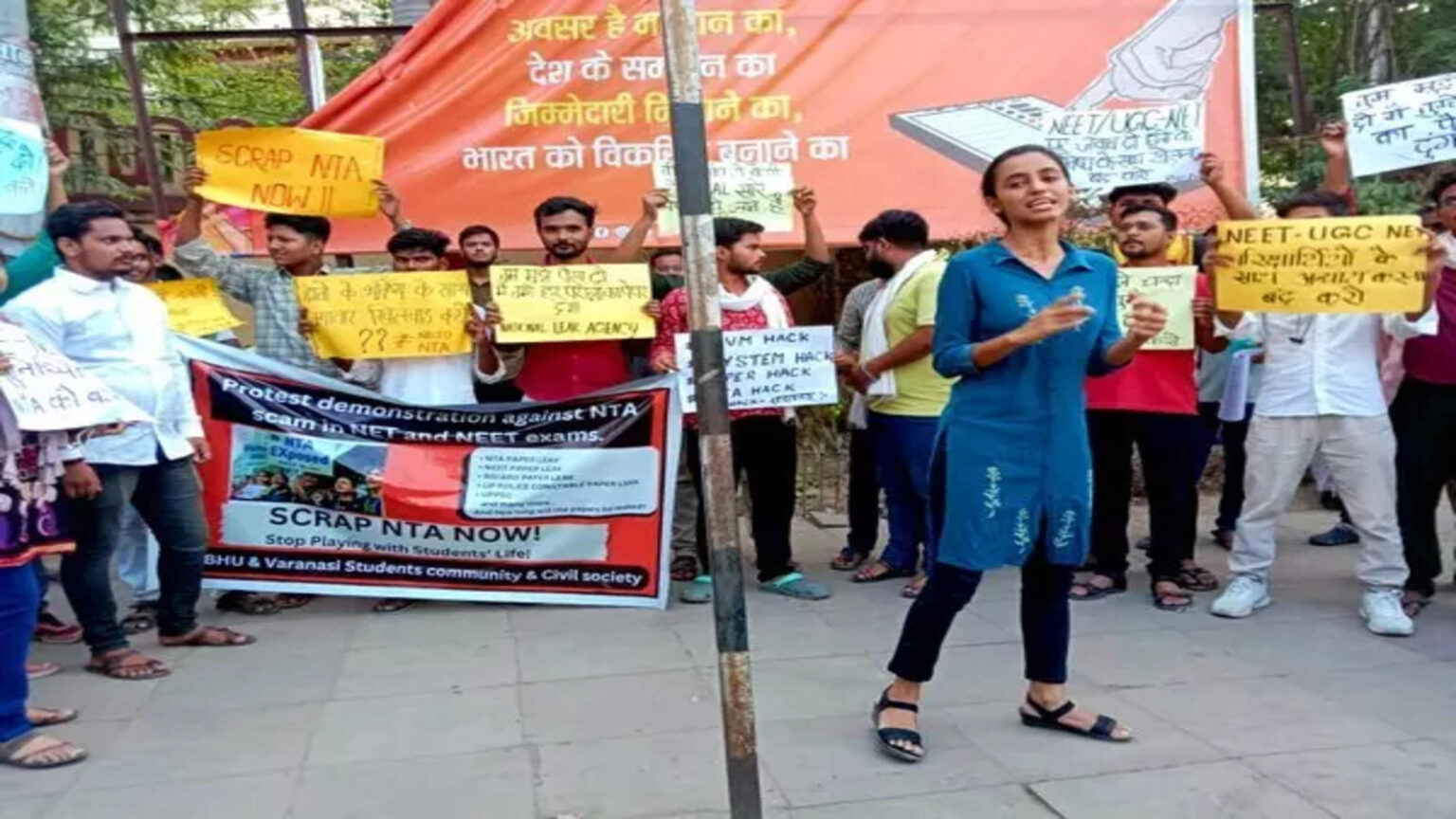The Public Examinations (Prevention of Unfair Means) Act, 2024 became operational on Friday intending to curb unfair practices in public exams and entrance tests nationwide.
Table of Contents
The Centre has implemented a tough regulation to stop incidents of paper leaks and cheating following controversies related to the NEET and UGC-NET exams.
The Public Examinations (Prevention of Unfair Means) Act, 2024 notification was issued the day after Education Minister Dharmendra Pradhan was questioned about its implementation. This arrives amidst the extensive controversy regarding the purported wrongdoings in organising the NEET and UGC NET exams.
The Ministry of Personnel, Public Grievances, and Pensions issued a notice in the gazette stating that the central government has appointed June 21, 2024, as the date for the implementation of the provisions of the Public Examinations (Prevention of Unfair Means) Act, 2024.
Background
Both Houses of Parliament approved the Bill during the Budget session that ended on February 10. It aims to stop unethical methods in public exams and ensure more openness, equity, and trustworthiness. On February 13, President Droupadi Murmu approved the Public Examinations (Prevention of Unfair Means), Bill, 2024, to prevent cheating in government recruitment exams.
Scope of the Act
The Act defines public examinations as tests carried out by officials appointed by the central government. This roster includes the Union Public Service Commission, Staff Selection Commission, Railway Recruitment Board, National Testing Agency, Institute of Banking Personnel Selection, and central government departments along with their affiliated offices for recruitment. The Act also makes it illegal to share confidential exam information early, as well as to prevent unauthorised individuals from entering exam venues to cause disturbances.
Prohibited Actions and Penalties
Offences will result in a prison sentence ranging from three to five years and a fine of up to Rs 10 lakh. Every violation specified in the proposed legislation will be considered cognisable, non-bailable, and non-compoundable.
According to the Act, starting on Friday, anyone caught leaking a paper or altering answer sheets will be sentenced to at least three years in prison. This may be prolonged to a duration of five years with a penalty of up to ₹ 10 lakh. Every violation stated in the Act will be considered as cognisable and not eligible for bail. Examination service providers can face fines up to ₹ 1 crore if they fail to report information about a potential offence that they know of.
Accountability and Severe Consequences
Suppose it is found during the inquiry that a senior executive of the service provider permitted or participated in the crime. In that case, they will be sentenced to a minimum of three years in prison, up to a maximum of 10 years, and will have to pay a fine of ₹ 1 crore. In case of the examination authority or service provider engaging in organised crime, they will face a jail term ranging from five to ten years and a fine of ₹ 1 crore will be imposed.
The communication references the Bharatiya Nyaya Sanhita but clarifies that the rules of the Indian Penal Code will continue to be enforced until its implementation. The Sanhita and other criminal statutes are set to take effect on July 1.
Conclusion: Ensuring Integrity in Public Examinations
The implementation of the Public Examinations (Prevention of Unfair Means) Act, of 2024 marks a significant milestone in the fight against academic dishonesty in India. With stringent measures including severe penalties and imprisonment for offenders, the Act aims to restore integrity and fairness to public examinations. As the country grapples with past scandals like those involving NEET and UGC NET, this new law promises to uphold the credibility of the nation’s examination system, ensuring a level playing field for all aspirants.
